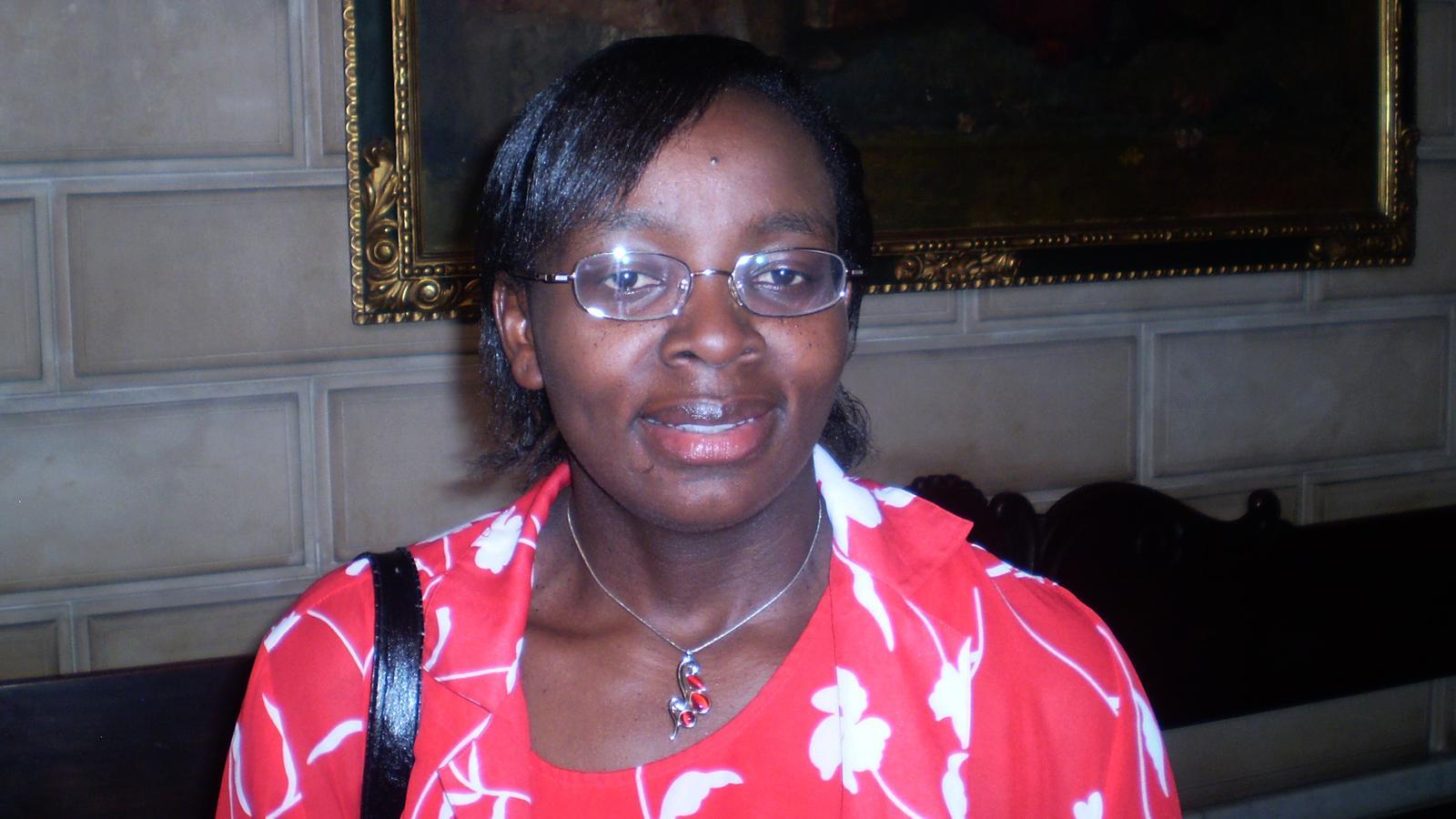The Kagame regime's opposition leader, who prepared her campaign in Mallorca, is imprisoned in Rwanda.
This is the second legal proceeding in the African country against the activist, who was unable to run in the elections and who receives support from island entities.


PalmVictoire Ingabire, the Rwandan politician who 15 years ago prepared to participate in the African country's elections in Mallorca, has been sent to pretrial detention on charges of forming an alleged criminal group and inciting public unrest. The decision, as confirmed by various African media outlets and those close to the politician and human rights activist, was made on July 15, "arguing a risk of flight and possible interference in the investigations," sources from organizations such as Veritas Rwanda Forum, which has been working for the democratization of the region for years, told ARA Baleares.
Ingabire's arrest took place on June 19, and her case was then transferred to the Kicukiro Court of First Instance on June 30, with an express request for pretrial detention. Despite her defense's attempts to avoid pretrial detention, the Rwandan courts deemed it necessary to send her to prison, which has again generated great concern among her family and exile support groups, who live mainly in Europe.
Relationship with Mallorca
Victoire Ingabire Umuhoza is a Rwandan activist and politician who has been trying for years to democratize her country and secure the return of the tens of thousands of exiles that this small African state has accumulated. To advance her campaign, Ingabire received significant support from various groups linked to Mallorca. At the end of 2009, she arrived on the island and settled at the Fundació s'Olivar (Estellencs), where, with the help of human rights activist Joan Carrero and a series of specialists, she prepared her strategy for her attempt to run in the 2010 elections. All of them, at the time, were warned that she would truly be an alternative candidate, much less one that would denounce her role in the region, "being a key player in the plundering of coltan and other minerals owned by the Congo and sold with impunity on the international market by Rwanda," Carrero has repeatedly explained.
The activist was able to organize and consolidate his political platform, as well as establish contacts with members of the Rwandan diaspora and support groups. Furthermore, during the months he spent in Mallorca, Ingabire dedicated himself to preparing his candidacy, developing political programs, and networking with international organizations and the public to denounce the political situation in Rwanda and the Paul Kagame regime.
A return with immediate trial
Shortly after her return to Rwanda in April 2010, Ingabire was arrested by the authorities, who alleged that she had made statements against Rwandan interests. This arrest prevented her from participating in the elections with the FDU-Inkingi party. When Victoire Ingabire was tried in Rwanda, she was first imprisoned for a time, and then placed under house arrest before the final sentence. These measures were part of a judicial process that Many international observers and human rights organizations criticized due to a lack of guarantees and for being an instrument of political repression.
The sentence for Ingabirand was sentenced to 15 years in prison, Although he was able to serve part of his term under house arrest, he has never been able to see his children since he decided to enter Rwanda in 2010.
Although Kagame had to compete with other candidates, international analysts concluded that these formally opposition parties were ""political satellites" of the ruling party (RPF), created to maintain an appearance of pluralism without making a real control of powerVictoire Ingabire's stay in Mallorca and the support she received on the island were key to raising international awareness of her cause and denouncing the political repression in her country. A conflict with the underlying economic interests of large technology manufacturers, which until then was relatively unknown internationally.
The conflict over natural resources
Rwanda has played a central and controversial role in the instability of the eastern Democratic Republic of the Congo (DRC) for decades. Following the 1994 genocide and the rise to power of the Rwandan Patriotic Front (RPF) led by Paul Kagame, Rwanda has carried out several military interventions in the Congo, often justified as security operations against Hutu rebel groups and other armed forces present on the border.
However, these interventions, as denounced by Forum Veritas Rwanda, "have also been motivated by economic interests, particularly the control of strategic natural resources abundant in the region, such as coltan, a mineral essential to the global technology industry." Rwanda has been repeatedly accused of plundering these resources, fueling a cycle of conflict and violence that has caused millions of deaths and displacement.
Activists and opposition politicians, such as Victoire Ingabire, have denounced this situation and the internal repression, as well as the regime's involvement in plundering and human rights violations inside and outside Rwanda. The opposition sought to break the cycle of violence and corruption that perpetuated instability in the region and to promote a policy based on transparency, peace, and respect for fundamental rights.
A lawsuit against Rwanda filed from the Islands
The Veritas Rwanda Forum Foundation, an organization made up primarily of members of the Rwandan diaspora in different countries and supported by individuals and organizations in Catalonia (who have been working for more than 20 years to shed light on the murder of Catalan volunteers and religious leaders in Rwanda in 1997) and Mallorca, filed a complaint with the Spanish High Court. The complaint, legally led by attorney Jordi Palou, was based on allegations of serious human rights violations, including torture, extrajudicial killings, and systematic repression against the Rwandan political opposition and civil society. The purpose of the complaint was to hold Kagame and his collaborators legally accountable for these crimes, highlighting the impunity that has reigned in Rwanda during his years in office.
The case had a strong media impact and generated a broad debate about the responsibility of African leaders in international and Spanish courts, as well as the possibility of victims and political opponents accessing justice outside Rwanda. When Kagame and his government team were formally charged, it created a genuine international uproar. But his status as head of state hindered the progress of the proceedings. According to the human rights organization, "it represented an important step in the fight for truth, justice, and the denunciation of the political repression in the country, and demonstrated the commitment of the Rwandan diaspora and its allies to the defense of human rights."
